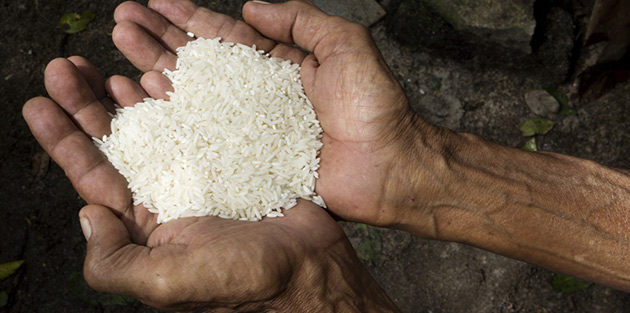You’ve Got One Wish: You can make the world a better place. What do you do? by Steve Fritzinger
Recently, a friend asked a group of us, “If you had one wish to make the world a better place, what would you wish for?”
Some people gave the standard answers: world peace, the end of hunger, that sort of thing. Not me. You see, I know that wishes come from genies and, in my experience, genies are cruel. If you wish for the end of hunger, a genie might kill everyone else in the world and leave you to scavenge for canned goods in the post-apocalyptic rubble. Technically, your wish would have been granted, but that’s probably not what you had in mind.
Knowing that it’s unwise to trust mysterious, powerful entities that you can neither understand nor control, I was more thoughtful about my wish. I wanted a wish that not even the most malevolent genie could twist into something evil. A wish that was safe from unintended consequences and blowback. A wish that would have good results, not just express good intentions.
While I was at it, I thought, why solve just one problem? Could I wish a wish that would solve all the world’s problems at once?
It was a tall order, but after due consideration, I hit on the solution. I would wish for a simple, practical, repeatable way to help societies become open, liberal, and economically free. Such societies are able to solve problems for themselves in ways that are unimaginable to genies and other mystic entities. Instead of solving problems one wish at a time, they solve problems in bunches, creating huge advances in human flourishing.
Even without genies, there are plenty of examples of wishes backfiring in the real world. Take vitamin A deficiency, for example. This condition is widespread across the developing world. It kills 670,000 children a year and blinds millions more. Scientists and humanitarians long wished for a grand solution to this scourge. In 1984 they came up with the idea of Golden Rice, a genetically modified strain of rice that contains beta-carotene, which the body can turn into vitamin A. Since rice is a staple of diets in poor countries, turning it into a source of vitamin A could greatly reduce or even eliminate vitamin A deficiency.
Scientists started working to make this wish reality, but after 30 years of development at a cost of over $100 million, Golden Rice has yet to save a single life. For much of its history, Golden Rice was mired in patent disputes. Over 40 international patents control the techniques used to transplant genes from one species to another. Legal wrangling over who owns the rights to what delayed the project for a decade. Those issues were finally resolved when the patent owners agreed to create a patent pool that would allow Golden Rice to move to commercial development unencumbered by licensing fees or the risk of lawsuits.
That wasn’t the end of Golden Rice’s woes, though. When scientists planted test fields of the rice in the Philippines in 2013, environmentalists and skeptics of genetically modified foods denounced the tests and vandalized the fields. They tore up the seedlings and set the project back months. The promise of sparing the eyesight of millions of children wasn’t enough to overcome the fears of what could happen if we allowed “Frankenfoods” in our diets.
The countries that eventually grew into today’s relatively open, liberal, and economically free societies were once also stricken with vitamin A deficiency. Today, that disease is almost unheard of. It didn’t take a genetically modified cereal crop to eliminate it. Blessed with economic freedom, those societies simply grew rich enough that even the poorest people could afford a varied diet with either enough green leafy vegetables to meet their vitamin A needs or, at worst, foods that have been fortified with vitamin A.
While getting rich enough to solve their vitamin A problem, those societies also almost completely eliminated infant mortality, created near universal literacy, transitioned children from labor in factories and farms to schools and created opportunities for happiness unheard of just a few generations ago. These societies have advanced so far that, for the first time in human history, we worry that our poor people are too fat.
In a handful of developing countries, half-steps toward economic freedom are starting to work their wish-free magic. Some public health officials now argue that Golden Rice is not needed in India and parts of China because those countries can afford more of the same varied diets and enriched foods eaten in the developed world. Just like in the developed world, those countries are enjoying the same wide-ranging improvements in quality of life that the developed world has experienced.
Solving all the world’s problems in one stroke is an appealing prospect. The next time I have a wish to make, I’m wishing for the advancement of open, liberal societies and economic freedom everywhere. That should work out much better than my last encounter with genies.
ABOUT STEVE FRITZINGER
Steve Fritzinger is a business consultant in the Washington, D.C., metro area.
EDITORS NOTE: The featured image is courtesy of FEE and Shutterstock.


